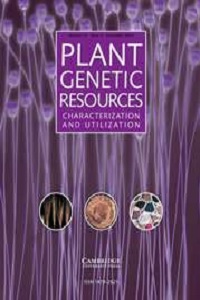Mainstreaming the continuum approach to the management of plant genetic resources for food and agriculture through national strategy
Global food security could be imperilled by the combined pressures from the effects of continually evolving climatic conditions, demographics and other socio-economic factors, the demands of the livestock, bioenergy and fibre industries for food-based substrates, the static or decreasing availability of natural resources for agriculture and the impracticality of increased use of economically and environmentally costly agricultural inputs. The optimal harnessing of plant genetic resources for food and agriculture (PGRFA) in manners that translate their repertoire of hidden potentials into significantly enhanced crop productivities has been severally identified as crucial to achieving the required considerably significant increases in food production. The scope of the problems and the plausible means for addressing them compel the devising of novel and more efficient ways for deploying PGRFA in need-based crop improvement programmes. We posit a continuum approach to the management of PGRFA which links seamlessly the effective conservation and access to PGRFA through their use in developing superior and resilient crop varieties to the provision of their high-quality seeds and planting materials to the growers. To achieve the mainstreaming of this paradigm, we propose the institutionalization of overarching national PGRFA strategies that prescribe result-oriented action plans spanning above three components of the management of PGRFA for a country's priority crops. We also describe the strategy as a means for identifying and assigning responsibilities to critical stakeholders and providing for the governance of all aspects of PGRFA activities over specific time frames. Steps to developing and adopting a national PGRFA strategy are also suggested.

